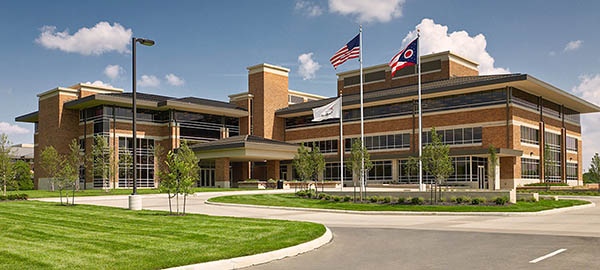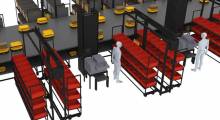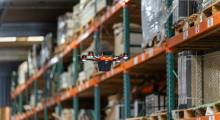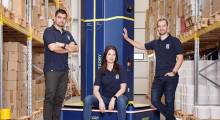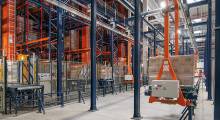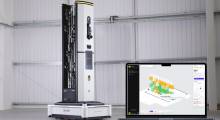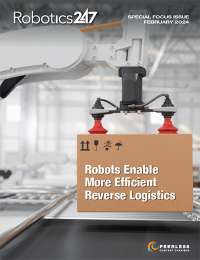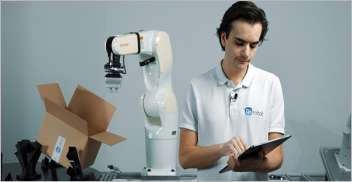Cardinal Health’s Dorval, Quebec, distribution facility is the company’s first in Canada to implement autonomous mobile robots, or AMRs, helping to drive efficiency, improve employee safety and increase picking and packing accuracy.
Twenty-seven Locus robots now support the work of the over 200 employees at the 225,000-sq. ft. facility.
“Our customers and suppliers look to us for supply chain expertise, which requires us to continuously advance our processes and technology to support their changing needs,” says Russell Schuster, president of Cardinal Health Canada. “We believe that investing in automation builds further trust and confidence, because our customers know that we are committed to continually evolving to best serve them.”
Humans work hand in hand with Locus robots
The robots bring the work to the employees, allowing teams to pick more orders quickly and accurately, the company said.
Here’s how they work: Integrated with the facility’s warehouse management system, the robots receive picking instructions at the start of every shift, are loaded with totes, and, using sophisticated AI and optimization algorithms, determine the most efficient routes for traveling from one pick to the next to optimally satisfy the customer order.
The robots are multilingual, providing instructions in both English and French on touchscreen devices, as well as pictures of the products, which help ensure that employees identify the correct products in the requested quantities.
Employees scan the items into the robot’s digital system and then place the products into the robot’s totes.
The robots then move on to the next picking area. Once its totes are fully packed, the robot moves them to a staging area for loading onto delivery trucks.
Working with the robots means that each employee stays within a specific zone in the facility and becomes an expert on the products located in that area.
Workers have to do less manual labor thanks to AMRs
Employees no longer have to push carts loaded with hundreds of pounds of products, enhancing employees’ health and safety.
The robots help manage labor shortages, making it easier to attract and retain talent and helping new hires onboard more quickly, it said.
Cardinal Health Canada said is actively looking to expand the use of robotics to other facilities, to best service customers across the country.
Beverlie Taylor, director of operations in Quebec and Atlantic Canada, said, “Our employees are open to change, and are excited about working with the robots. They’ve adapted quickly to this new technology.”
The deployment of robotics is part of Cardinal Health’s commitment to enhance automation and drive efficiencies in its supply chain and operations across the enterprise
“Our teams know that there are patients at the end of their efforts; they’re dedicated to ensuring that our customers get the products they need, when they need them, Schuster added. “Our investments in new technologies make it easier for our employees to serve customers and ultimately the Canadian healthcare system.”
Article topics
Email Sign Up

